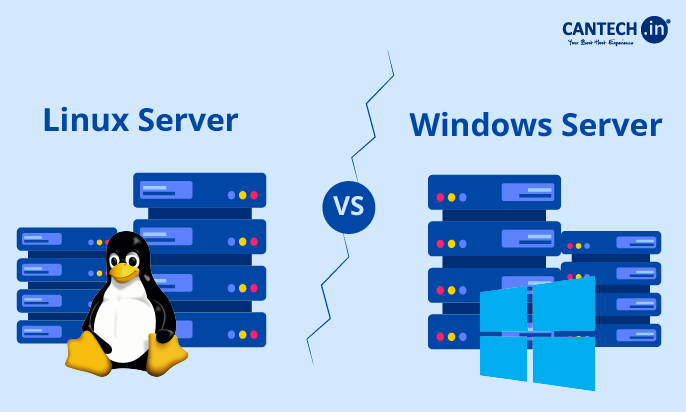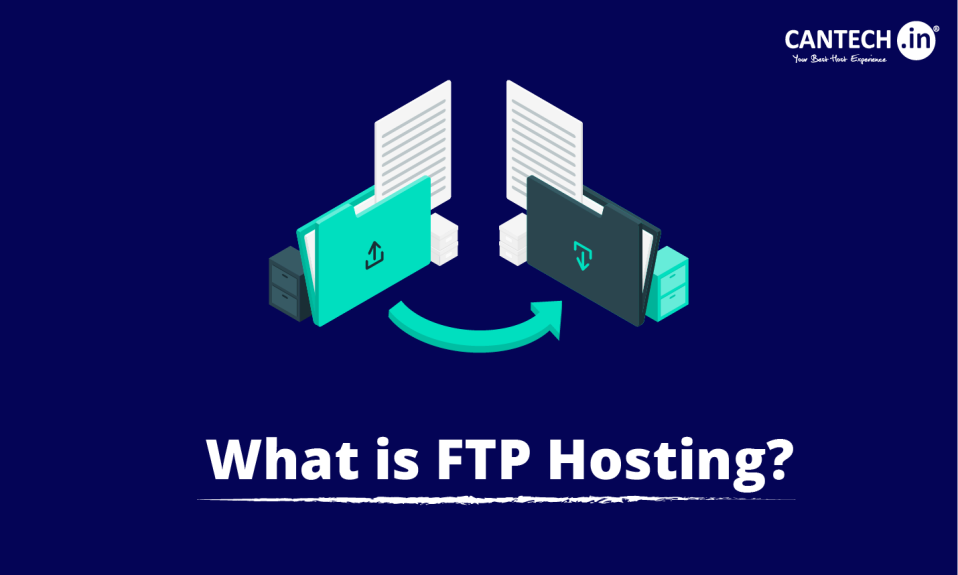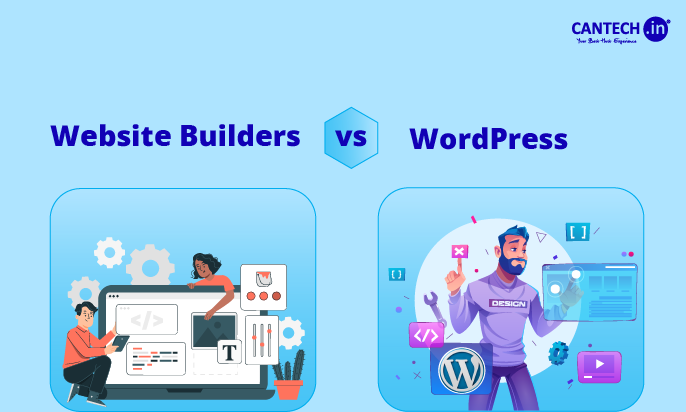Introduction
Servers are an essential part of today’s life that relies heavily on the world of the web. They allow people to access and share information. Also, businesses and individuals use servers to run applications or websites. Thus, it is important to choose the right server operating system for managing sites or applications. The main confusion lies between Linux servers and Windows servers. They both offer powerful features but serve different needs. This blog compares Linux server vs Windows server to give a clear understanding of their differences. You must choose the right one to avoid inefficiency and compatibility issues.
So, this blog will discuss the key features, benefits, drawbacks, and differences between Linux and Windows servers. It will help you select the option that best suits your technical requirements and budget. Also, it will clear the doubts many have about server compatibility and security. Furthermore, it highlights specific use cases and compares system capabilities to make your server selection process easier and more reliable.
Linux Server vs Windows Server: Basics
Let us understand the meaning, features, pros and cons of both Linux and Windows servers:
Understanding Linux Server
What is Linux Server
A Linux server is a system that runs on the Linux Operating System. It is popular for its open-source nature and flexibility. This server type efficiently manages resources and ensures the smooth operation of software and services. They are built around the Linux Kernel.
Moreover, Linux has now a powerful solution that many large enterprises like IBM and Oracle now use for their server needs. It was developed in 1991 by Linus Torvalds,
Key Features of a Linux Server
- Linux servers are free to use and affordable for businesses because they don’t require a licensing fee.
- It is open-source so you can access and modify the source code.
- Most Linux servers give great control to expert users as they are managed via command-line interfaces.
- They support programming languages like MySQL, PHP, Python, and Perl. This compatibility makes them ideal for developers working with open-source technologies.
- They can handle multiple users simultaneously with no compromise in performance.
- Its security architecture includes layers of authorization, encryption, and authentication for high levels of protection.
- You can manage multiple tasks and processes at once using these servers. Thus, it can efficiently handle heavy workloads.
- The Linux community regularly provides updates and maintenance so this feature ensures continuous support and improvements to the system.
Advantages of Linux Servers
- Cost-Effective
No licensing fees are required so it is a budget-friendly option
- Strong Security
The strong security of Linux servers minimizes the risk of cyber-attacks and makes it a safe choice for sensitive data.
- High Portability
Code transfer between different systems is easy and ensures compatibility across various architectures. Thus, they can run on various hardware platforms without needing modifications.
- Customizable Features
You can modify the source code according to your needs. This benefit provides high flexibility for developers.
- Efficient Multitasking
Linux servers can handle multiple processes simultaneously so it increases their versatility for various applications.
- Enhanced Privacy
The open-source nature allows greater control over their data and privacy settings.
- Robust Community Support
A large community actively contributes to the maintenance and development of Linux with regular updates and support.
Disadvantages of Linux Servers
- Steep Learning Curve
Linux is not as user-friendly as Windows so it can be challenging for beginners.
- Limited Compatibility with Gaming
Linux is less suitable for gaming or entertainment applications due to compatibility issues.
- Inferior Technical Assistance
The technical support for Linux can be less accessible and comprehensive compared to Windows.
- Complex Drive Management
You may find it difficult to create drives and manage storage in Linux.
Understanding Windows Server
What is Windows Server
A Windows server is a popular choice for businesses that rely on Microsoft-based applications and services. It is a commercial product developed by Microsoft with a graphical user interface (GUI) for user-friendly operation.
Moreover, it supports a wide range of applications like database management systems, web hosting solutions, email servers, etc.
Because Windows servers offer seamless integration with other Microsoft products it is a preferred choice for businesses using tools like Microsoft Office and SharePoint.
All in all, it offers user-friendly and enterprise-focused capabilities.
Key Features of Windows Servers
- Windows server is easier to install and configure compared to other servers. Thus, it is a good option for beginners or small businesses.
- These servers are optimized for Microsoft applications so they are ideal for organizations that use ASP.NET, Exchange, or SQL Server.
- You get 24/7 complete support from Microsoft for professional assistance.
- Windows servers provide a platform that supports entertainment-related industries like gaming and multimedia applications.
Advantages of Windows Servers
- User-Friendly Interface
The easy GUI makes it easy for beginners to navigate and manage especially for those who are not familiar with command-line tools.
- Broad Compatibility
Windows servers support a wide range of third-party applications and are fully compatible with Microsoft products.
- Less Resource Intensive
Windows requires minimal management due to automated updates so it reduces the need for constant monitoring.
- Enhanced Stability
Windows is suitable for enterprise applications and services as it provides a stable environment.
- Guaranteed Maintenance
The licensing for Windows includes five years of guaranteed maintenance and extended support options.
Disadvantages of Windows Servers
- High Licensing Costs
They have huge licensing fees so it may not be cost-effective for all businesses.
- Weaker Security
Windows requires additional protection from third-party antivirus software compared to Linux due to its vulnerabilities.
- Resource-Intensive Operation
The GUI of Windows requiring more system resources than command-line-based systems can be resource-heavy.
- Less Flexibility
Users have limited customization options compared to the open-source flexibility of Linux.
Linux Server vs Windows Server: The Comparison
Both systems have unique strengths and are suited for different needs so understanding the below differences can help businesses choose an ideal server infrastructure.
User Interface (UI)
Windows is accessible to beginners due to its graphical user interface (GUI) and Microsoft tools. Thus, it simplifies server management with simple setup and navigation.
On the other hand, Linux offers a command-line interface (CLI) that is highly customizable. This feature allows experienced users to execute complex commands efficiently but those unfamiliar with Linux may find it complex. However, it ensures smooth operations for those proficient in its commands and codes.
Security
Linux servers use an open-source OS which is mostly more secure. The community ensures fast identification and patching of vulnerabilities. This open model contributes to a strong security framework based on authentication, authorization, and encryption.
On the other hand, Windows servers do have strong security features but they also have risks of malware attacks due to their widespread use. Microsoft implements a prevention, detection, and response framework to protect its servers. It also uses tools like Windows Defender and BitLocker.
Overall, Linux’s modular architecture provides isolated components and prevents malware’s spread. All in all, it allows for better security measures. Windows servers can be secured with proper configuration but Linux is mostly considered a more secure option.
Performance
In Linux server vs Windows server performance, Linux servers are better than Windows as they manage multiple tasks simultaneously with efficient file systems and use very less resources even for large volumes of data. This speed is essential for customer retention and to ensure efficient operations.
On the other hand, Windows servers require more resources which can further result in higher operational costs. It has introduced features like Thread Pooling to improve efficiency but Linux’s resource management remains superior.
Further, Windows Server 2022 has made improvements in IIS and upgraded performance levels but it still lags behind Linux in handling high traffic volumes. The performance issues can impact the overall performance of applications hosted on Windows servers.
Customization Features
Linux has extensive customization options so you can modify features to suit your needs or even build functionalities from scratch.
Whereas, Windows offers limited customization capabilities and does not allow users to create entirely new features.
Other Prominent Features
-
Linux
- Linux supports multiple users and is the best in task management.
- As previously mentioned, a Linux server is highly portable and offers community-driven enhancements.
-
Windows
- Windows provides a user-friendly dashboard and ease of setup.
- It is optimized for gaming and entertainment applications.
Pricing
As an open-source software, Linux is free to use so it is an attractive option for small and medium-sized enterprises looking to reduce costs. Also, Linux servers do not need high infrastructure costs because of their operating system which requires minimal hardware resources.
In contrast, Windows servers mostly include higher initial costs as they need to purchase licenses that vary based on the edition and number of users. The total cost of ownership would include expenses related to maintenance, support, and upgrades.
Moreover, the Linux community continuously updates and provides patches for its software without additional costs. This practice reduces the need for expensive support contracts. On the other hand, Microsoft requires separate subscriptions for upgrades and support services resulting in increased long-term expenses.
However, businesses must also count the potential costs of hiring Linux administrators and training staff. Also, they will need to acquire specialized tools for managing Linux servers.
Architecture
Linux operates on a monolithic kernel architecture that offers flexibility with loadable modules. Whereas, Windows uses a hybrid kernel architecture that separates core functions from hardware abstraction layers.
Application Compatibility
Linux is highly compatible with open-source applications such as Apache, Nginx, MySQL, and programming languages like PHP and Python. On the other hand, Windows is the best for native Windows applications like Microsoft Office and .NET software.
Linux Server vs. Windows Server: Summary of Differences

Choosing Between Linux Server and Windows Server
For the efficiency and functionality of any organization, you must choose the right OS server. Several factors influence this decision. Let us discuss the primary ones –
Cost
Linux is open-source so it is a cost-effective option with no big licensing fees. You only need to consider installation and maintenance expenses. Also, it reduces your overall costs for managing servers. Thus, you can expect significant savings compared to other options.
Technical Expertise
Linux requires an administrator with strong command-line skills for effective management and resource settings. On the other hand, beginners may find Windows more user-friendly as first-time users can easily navigate the system.
Security and Stability
- More secure and stable than Windows servers
- Perfect for environments that require high-level security like financial institutions or government bodies
- Regular updates and community-driven patches keep security at its best.
Industry-specific preferences
Web Hosting Industry
Linux is popular as it is cost-effective, stable, and secure. Also, it offers extensive customization and regular updates.
- A popular choice for web hosting for websites, especially for PHP, MySQL, or other open-source technologies.
- Compatible with Apache and NGINX web servers so ideal for small to large websites and e-commerce platforms.
- It supports other essential technologies such as Apache, Node.js, JavaScript, Perl, and Python.
- Installing WordPress on a Linux server offers seamless access to these tools that further facilitate smooth site creation and management.
Gaming Industry
Windows is the go-to choice with superior graphics and multimedia support necessary for a seamless gaming experience.
Education Industry
Unix-based systems like Linux can give the stability and security required to accommodate large user volumes in educational settings.
Healthcare & Finance Industry
Linux servers include the best security and compliance features so it can fulfil strict regulatory standards.
Also, Windows servers can be used due to better integration capabilities with Microsoft applications like Excel and Access.
E-commerce Industry
They are compatible with popular e-commerce platforms such as Magento and WooCommerce.
Specialized Windows Server Features
Microsoft Application Integration
- For businesses using Microsoft applications like ASP.NET, SQL Server, and Exchange
- Integrate seamlessly with Microsoft-based tools to make the workflow smooth
Enterprise Solutions
Offers Active Directory services, centralized user management, and group policies for large organizations that need to manage users and resources across multiple locations efficiently.
Remote Desktop Services
Windows servers offer built-in support for remote desktop access for employees. It becomes easy to manage and operate across different devices. This capability can be vital for businesses with remote work environments.
Easy Administration
Graphical user interface (GUI) makes server management easier for those who are not comfortable using command-line tools. The familiar interface is user-friendly for administrators and reduces the learning curve.
Cantech’s Linux and Windows Server for Various Web Hosting Solutions
Cantech offers both Linux and Windows server options with different web hosting solutions that can meet various needs. Cantech’s Linux servers are ideal for businesses looking for open-source, flexible, and cheap web hosting. They provide excellent support for web development tools so they are perfect for dynamic websites and applications.
On the other hand, Cantech’s Windows servers are best suited for businesses that rely on Microsoft technologies and Windows-specific applications.
Whether you’re looking for the reliability of a Windows dedicated server, the flexibility of a Linux dedicated server, or scalable VPS Hosting and shared hosting solutions, we deliver secure and performance-driven hosting tailored to meet your needs. Our plans ensure that your website has the reliability, security, and scalability to support your growing requirements.
Conclusion
Linux Server vs Windows Server comparison summary is that Linux servers provide cost-effective solutions with high levels of customization and flexibility. They serve industries that prioritize security and reliability. On the other hand, Windows servers offer user-friendly experiences and better integration with Microsoft tools.
However, your custom decision depends on your specific requirements and technical capabilities. So, you must evaluate your business needs before choosing because the right server operating system can impact the performance and efficiency of your operations.
FAQs for Linux Server vs Windows Server
What are the main differences between Linux and Windows servers?
Linux servers use an open-source operating system that provides high flexibility, security, and customization.
On the other hand, Windows servers are proprietary and focus on user-friendly interfaces and integration with Microsoft applications.
They both serve different needs based on user expertise and operational requirements.
How do Linux and Windows servers handle updates?
Linux servers provide updates through package managers that allow users to control which updates to install.
Whereas, Windows servers offer automated updates but may not give users the same level of control over the update process.
Which server type is better for small businesses?
Small businesses often prefer Linux servers as they are low in cost and offer resource efficiency. They also offer a range of features without any high licensing fees.
However, if they rely heavily on Microsoft products, a Windows server is a better fit for seamless integration.
Can I run Windows applications on a Linux server?
The use of Windows applications directly on a Linux server is not simple.
You can use compatibility layers or virtual machines to run specific Windows applications. However, this approach may cause performance issues and also require additional configuration.







